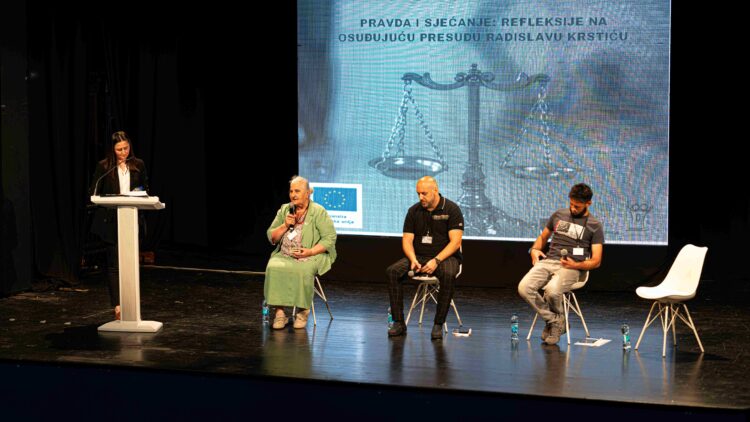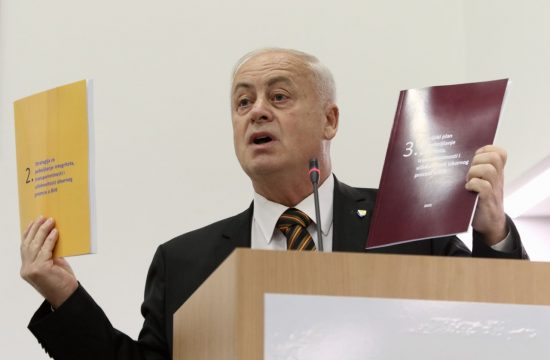
The Memorial Center today held a conference titled "Justice and Memory: Reflections on Radislav Krstic's Conviction" at the Cultural Center in Srebrenica. The conference gathered experts, survivors, lawyers, historians, and the general public to discuss the significance of Krstic's conviction for the genocide and crimes committed in Srebrenica, as well as the legal precedents set by this ruling, its impact on international law, and how it is interpreted in historical context.
During the opening of the conference, Emir Suljagic, the director of the Srebrenica Memorial Center, emphasized the importance of the location, noting that it is just 200 meters from the place shown in the video depicting the entry of the RS army led by Ratko Mladic and Radislav Krstic.
“We are here today with our story and we have no intention of negotiating about it. We have an obligation to the families and individuals who have carried this burden. Today, we speak about the Memorial Center as an institution, which exists thanks to activism and the civic struggle of mothers and families of the victims. Institutions do not exist without people. I thank everyone in the Memorial Center,” Suljagic stated.
Survivors Munira Subasic, Mirza Basic, and Fahrudin Muminovic shared their personal experiences of surviving the genocide and the subsequent struggle. Basic survived the Death March at fifteen, reaching free territory after 28 days. Muminović, who survived an execution at the age of seven, recounted how he witnessed his father's murder.
Munira Subasic, one of the most prominent figures in the fight for justice, tirelessly advocated for the Memorial Center and often set aside her personal pain for the greater cause.
Panelists such as Dr. Jasmin Mujanovic, Prof. Sead Turcalo, Dr. Muamer Dzananovic, lawyer Lejla Covi , Prof. Izet Sabotic, Prof. Dr. Goran Simic, and Dr. Emir Suljagic discussed the impact of Krstic's conviction on justice and reconciliation, its legal and historical significance, and the precedents it set for future genocide cases.
The conference emphasized the importance of judicial decisions in shaping historical narratives and highlighted the long-term effects of such rulings. As Prof. Turcalo noted, genocide is a planned and organized crime, not a mere coincidence. Dr. Dzananović pointed out Krstic's involvement in earlier crimes, leading to his role in the Srebrenica genocide.
Panelist Jasmin Mujanovic stressed that while legal judgments are crucial, they are only the starting point for broader societal understanding and reconciliation.
The conference concluded with a reminder of the essential role of justice and memory in building a better future for post-conflict societies.





Kakvo je tvoje mišljenje o ovome?
Budi prvi koji će ostaviti komentar!